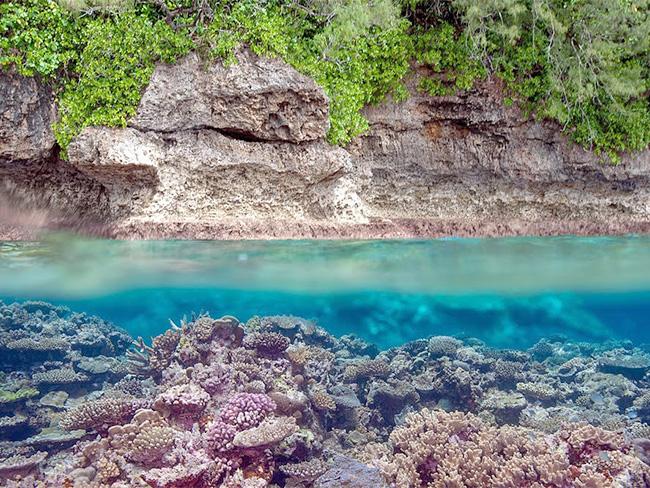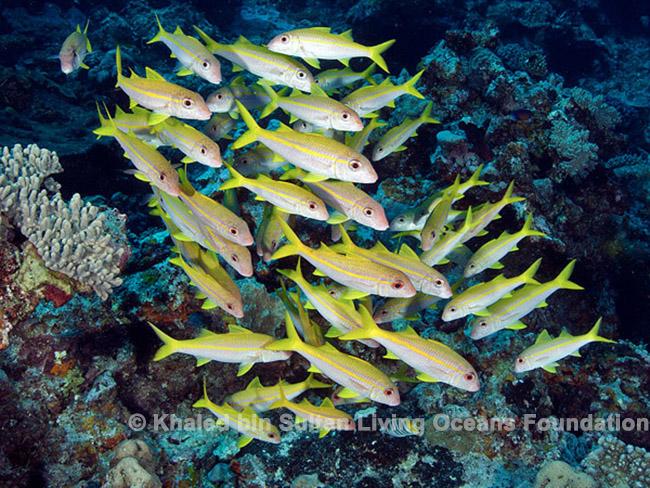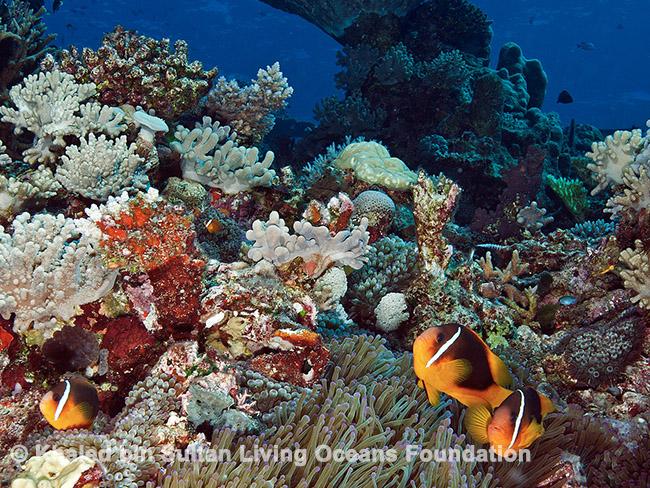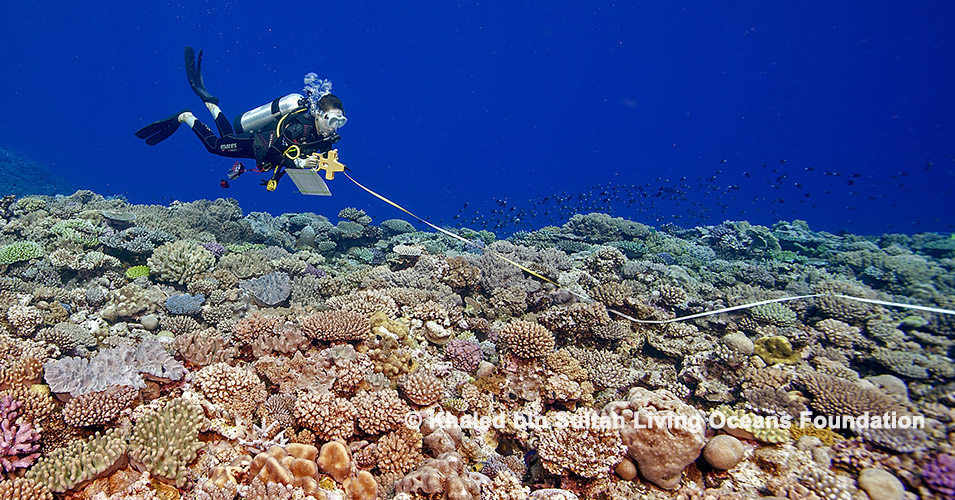
Alarmingly, very few large and commercially valuable fish were seen on the reefs in Tonga during a scientific survey conducted by the Global Reef Expedition, which released its online report on 30 January 2020.
“Tonga’s coral reef fish communities are dominated by small fish, considered low on the food chain, raising concern for the long-term sustainability of the fishery,” reports author Renee Carlton, a Marine Ecologist for the Khaled bin Sultan Living Oceans Foundation.
Evidence of overfishing was apparent. “We saw very few fish that are particularly important to local fishers, such as parrotfish, emperors, snappers, and groupers.
“Our findings highlight the importance of marine conservation already happening in Tonga, and expanding management efforts to even in the most remote regions of the country,” she said. In Tonga about 66 percent of the population's livelihood depends upon seafood.
Because the research was conducted several years ago the study's authors acknowledged that Tonga’s reefs may have changed since the 2013 Expedition, but the report released in 2020 still provides valuable data on the state of the reefs at a point in time. “Our hope is that the data included in this report will be used by the people of Tonga to help protect their coral reefs,” said Alexandra Dempsey, Director of Science Management for the Foundation.
Elizabeth Thompson, Director of Communications for the Foundation told Matangi Tonga why compiling the data for the report had taken so many years.
“The research mission to Tonga was part of the Global Reef Expedition, a 6-year mission that nearly circumnavigated the globe studying the coral reef crisis. We collected a lot of data from the expedition, and it took our 2-person science team years to analyze all of the data from the coral reef photo transacts from Tonga, as well as the other places we visited on the expedition, and it took even longer to make all of the maps.
“We had hoped to get this data to the people of Tonga sooner, but we wanted to present the highest-caliber data and this is how long it took us to do it right,” she said today.
Alarming
One of the most critical findings from the expedition to Tonga was the poor status of the fish communities at all three island groups surveyed.
“The fish communities appear to be dominated by herbivorous and planktonivorous fish so small, that they are unlikely to represent any semblance of a functional fishery. In both Ha‘apai and Vava‘u, fish larger than 40 cm were essentially absent, causing extreme concern regarding the long-term sustainability of these fish communities,” the authors reported.
“When compared to other countries visited, the reef fish communities more closely resemble those of the Caribbean, rather than other countries surveyed in the South Pacific such as neighboring Fiji and French Polynesia. This is alarming as both the fish communities and benthic habitats of the Caribbean are in poor condition, and the reefs of Tonga are nearing this same predicament.”
The report recommended that by actively protecting the Niuas fisheries the poor fishing situation in the southern Tongan groups would improve.
“Based on our findings we recommend substantial effort be dedicated to educating the people of Niuatoputau on the importance of sustainable fishing practices, as well as to protecting the marine resources and reefs surround the northern Niuas islands from larger fishing vessels.
“These reefs are of critical importance in providing new reef fish and benthic invertebrate recruits to the southern islands groups that are exposed to considerably elevated fishing pressures.”
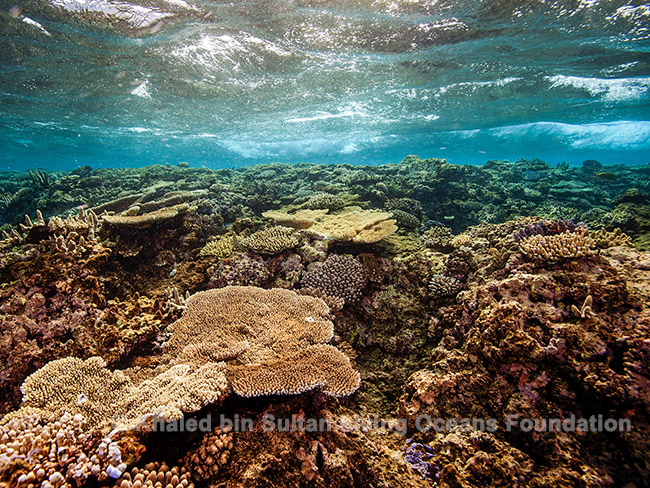
Reef protection
The Khaled bin Sultan Living Oceans Foundation carried out the coral reefs study in Tonga from September-October 2013, when scientists from Tonga, USA, Australia, Portugal, the Philippines, and Taiwan conducted nearly 500 surveys of coral reefs and reef fish around Ha‘apai, Vava‘u and Niuatoputapu.
They also collected over 2,200 KM2 of satellite imagery to develop detailed habitat and bathymetric maps of the seafloor.
In Niuatoputapu there was still evidence of the tsunami damage on the reef even six years after the tsunami wave hit the region.
Overall, Vava‘u had the highest total species richness (167 species), followed closely by Ha‘apai (165 species), and with the lowest species richness at Niuatoputapu (114 species).
Among other things, the report recommended education on the importance of establishing Special Management Areas (SMAs) on the reefs and the benefits they provide to local fishermen, improving documentation of fish catch, encouraging sustainable fishing practices in Niuatoputapu, and protecting the reefs surrounding the northern Niuas from larger fishing vessels.
With the establishment of additional Specially Managed Areas and Fish Habitat Reserves and continued enforcement of those that already exist, Tonga's fisheries resources could be protected and sustainably used by the people of Tonga for generations to come, they concluded.
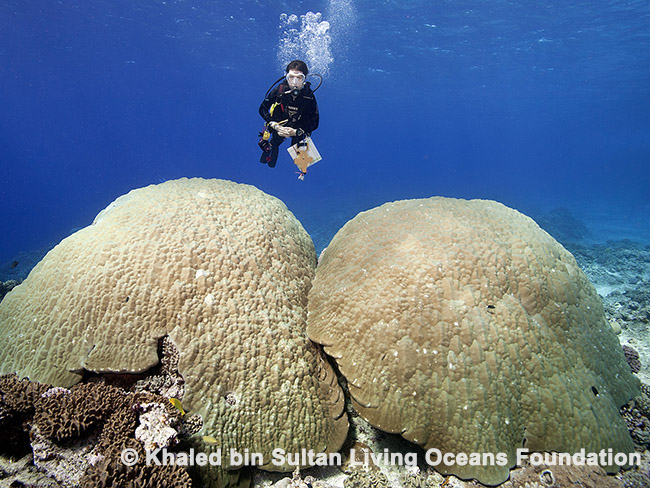
Largest global coral reef survey
Coral reefs face many threats, including pollution, climate change, overfishing, storm damage, and outbreaks of crown-of-thorns starfish. In order to see how these threats impacted reefs, and assess the status of Tonga’s marine resources, scientists on the expedition worked closely with local partners and government officials, who included representatives from the Ministry of Lands, Environment, Climate Change and Natural Resources; the Ministry of Agriculture, Forests and Fisheries; and the Vava’u Environmental Protection Association (VEPA).
The Khaled bin Sultan Living Oceans Foundation is a US-based nonprofit environmental organization that protects and restores the world’s oceans through scientific research, outreach, and education. It embarked on the 5-year long Global Reef Expedition—the largest coral reef survey and mapping expedition in history—to study the coral reef crisis on a global scale.
As part of its commitment to Science Without Borders®, the Living Oceans Foundation provides data and information to organizations, governments, scientists, and local communities so that they can use knowledge to work toward sustainable ocean protection. The foundation receives financial support from HRH Prince Khaled bin Sultan.


